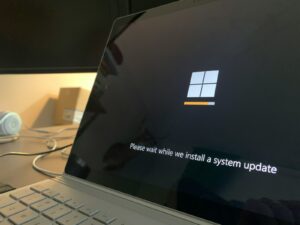Hacker chatter points to positive developments
Bit of good news in the security space — ransomware attacks dropped 37% in December, per the NCC Group’s Strategic Threat Intelligence Team. This is thought to be seasonal...
More from Podcast StoryMore posts in Podcast Story »
- FCC Votes to Restore Net Neutrality, Reclassifying Broadband as Essential Service
- AI’s Role in the Workplace: Enhancing Productivity Without Displacing Jobs, According to New Study
- Microsoft Urged to Rebuild Trust Amid Security Breaches and Rising Criticism
- FTC Votes to Ban Noncompete Agreements, Predicting $300 Billion Wage Increase Annually
- Apple Cuts Vision Pro Headset Forecast Amid Cooling Demand, Delays Cheaper Model

 Unlock with Patreon
Unlock with Patreon


